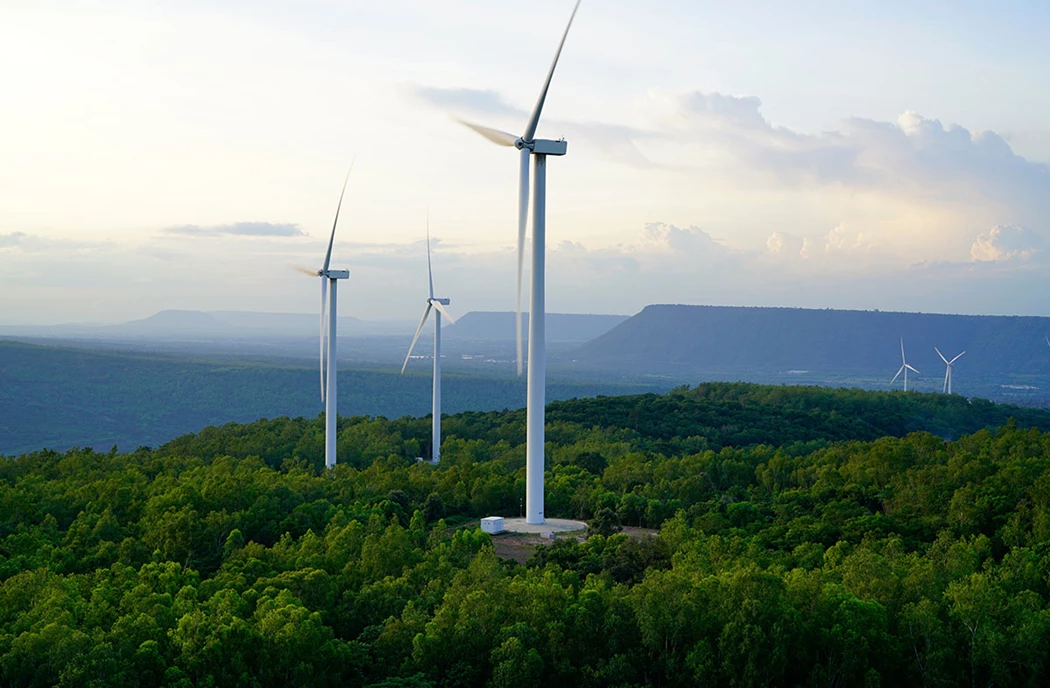Japan’s ‘Carbon Neutral’ LNG Shipments May Not Offset Emissions
(Bloomberg) -- Japan’s natural gas industry is making controversial claims about the fuel to make it more appealing to climate-conscious buyers.
Tokyo-based Inpex Corp. this month said it sold two “carbon neutral” liquefied natural gas shipments to Shizuoka Gas Co. and Toho Gas Co., offsetting the fuel’s lifetime emissions using credits from projects that include forest conservation in Indonesia. Those credits would offset more than 450,000 tons of carbon-dioxide emissions from the two shipments, covering the entire value chain from production to combustion, according to spokespeople at Shizuoka Gas and Toho Gas.
The three Japanese companies said they will use the credits to meet their targets for zero emissions. The companies didn’t disclose who paid for the credits, price or supplier.
But terms such as “carbon neutral” and “net zero” imply balancing emissions by removing an equivalent amount of carbon from the atmosphere. Climate scientists at bodies including the United Nations-backed Science-Based Targets initiative say measures such as preventing deforestation or supporting renewable energy projects actually do little to extract additional carbon from the air, and shouldn’t contribute to net-zero claims.
Inpex, whose biggest shareholder is the Japanese government, is aware that SBTi does not consider the use of compensation-type offsets for net-zero calculation, and understands the intention is for companies to prioritize initiatives on reducing their own emissions impact, according to a spokesman.
To that effect, Inpex “will proactively engage in energy structure reforms toward the realization of a net-zero carbon society by 2050,” the company said in an emailed statement. “The strategy includes, but is not limited to, upstream CO2 reduction and developing a hydrogen business.”
A Toho Gas spokesperson said that the credits were certified by Verra, an internationally recognized organization, and they are assisting in removing carbon dioxide from the environment. Verra did not immediately respond to a request for comment.
While the Japanese companies declined to comment on the price of the carbon offsets, LNG traders surveyed by Bloomberg over the last year say that those type of credits generally cost less than $6 a ton. That compares with about 61 euros ($72) a ton emitters pay in the European Union’s carbon market, the world’s most advanced.
An Inpex spokesman said that the Intergovernmental Panel on Climate Change’s special report on the impacts of global warming suggests it will be necessary to reduce and remove carbon dioxide emissions through forests in order to keep global warming within 1.5 degrees Celsius.
The practice of marking LNG shipments as “carbon neutral” has garnered criticism as there is no standard for measuring emissions from LNG, nor is there government oversight to ensure that offsets come from projects that deliver the carbon savings promised. Japan has been the top destination for these cargoes, importing nine of the 24 shipments since 2019, according to BloombergNEF.
The adoption of LNG with carbon offsets shows the challenges facing Japan and its pledge to achieve net-zero emissions by 2050. The archipelago nation is heavily reliant on imported fossil fuels and has little space for massive solar projects or onshore wind farms. The country is yet to fully embrace technologies like offshore wind and carbon capture and storage, which could help its decarbonization goals without needing a lot more land.
That’s why Japanese companies from utilities to hotels have been eager to purchase “carbon-neutral” natural gas, as they can tell customers and investors that they are zeroing-out emissions by paying a small premium. That’s despite experts warning against the use of offsets for balancing carbon books.
More stories like this are available on bloomberg.com
©2021 Bloomberg L.P.
KEEPING THE ENERGY INDUSTRY CONNECTED
Subscribe to our newsletter and get the best of Energy Connects directly to your inbox each week.
By subscribing, you agree to the processing of your personal data by dmg events as described in the Privacy Policy.
More renewables news

With Trump Looming, Biden’s Green Bank Moves to Close Billions in Deals

GE Vernova Expects More Trouble for Struggling Offshore Wind Industry

Climate Tech Funds See Cash Pile Rise to $86 Billion as Investing Slows

GE Vernova to Power City-Sized Data Centers With Gas as AI Demand Soars

Longi Delays Solar Module Plant in China as Sector Struggles

Australia Picks BP, Neoen Projects in Biggest Renewables Tender

SSE Plans £22 Billion Investment to Bolster Scotland’s Grid

A Booming and Coal-Heavy Steel Sector Risks India’s Green Goals

bp and JERA join forces to create global offshore wind joint venture
















